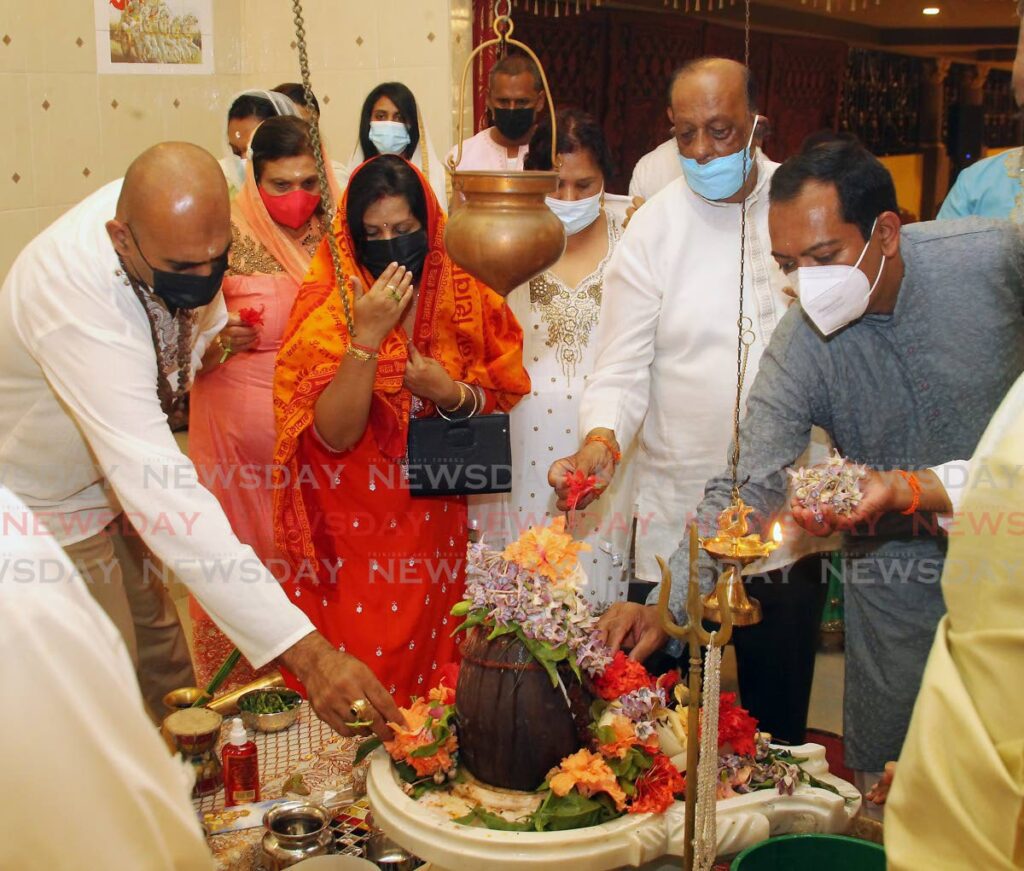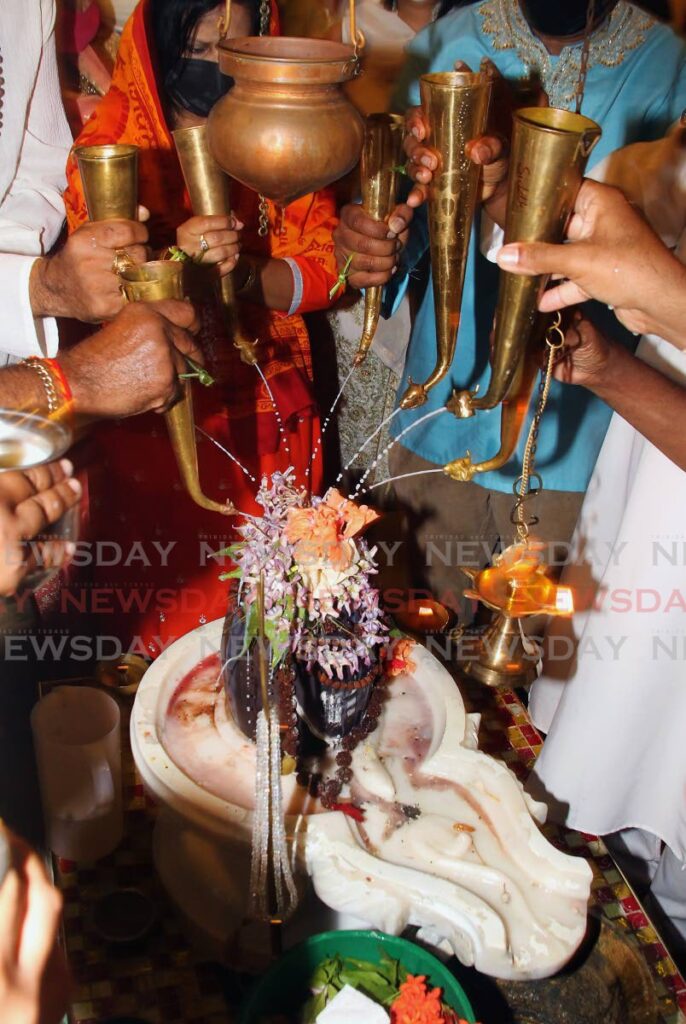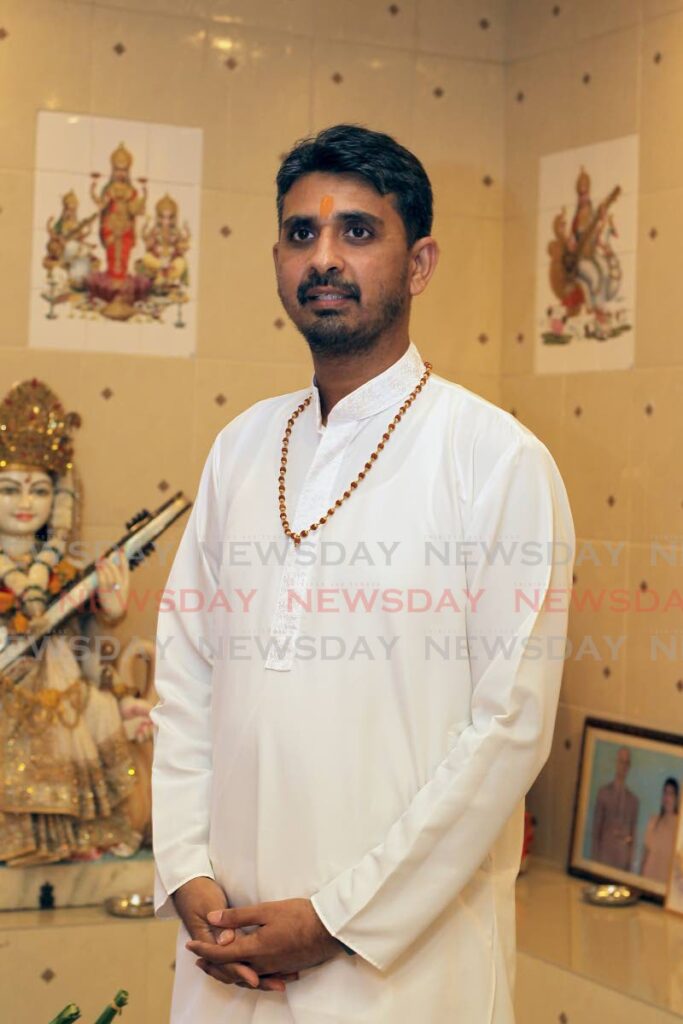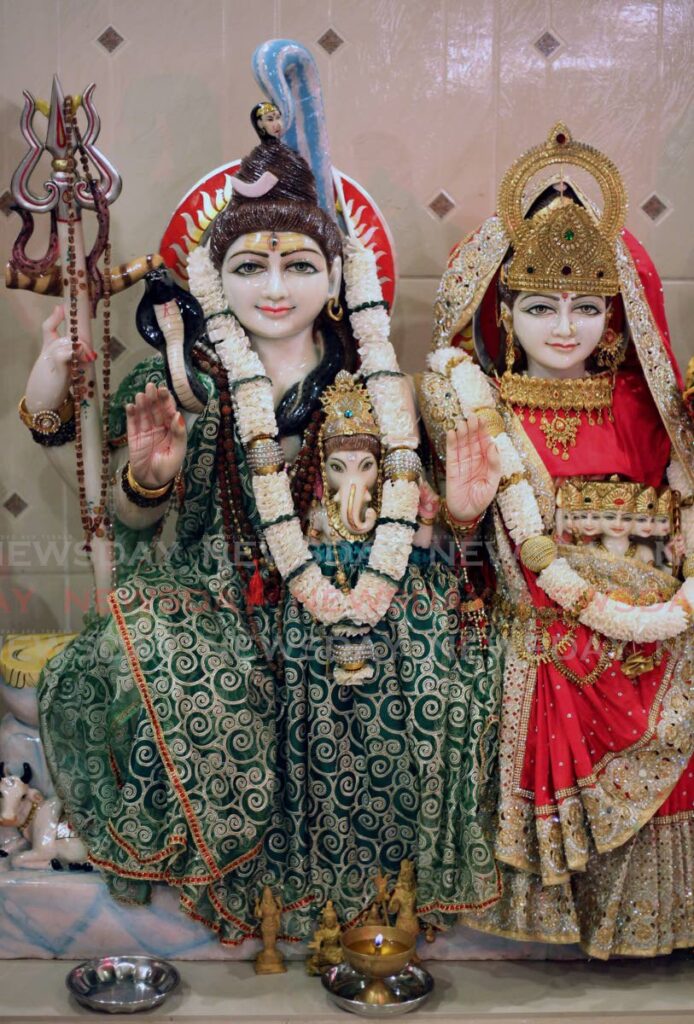Pundit likens Maha Shiv Raatri to Lent, Ramadan: Consumer of sins

Pundit Navin Omadath Maharaj has likened the observance of Maha Shiv Raatri, which is dedicated to Lord Shiva, and the three-week fast which precedes it, to the Christian celebration of Lent and the Muslims' Ramadan.
The observance began from sunset on February 28 to sunrise on March 1 on the 14th day of Chaturdashi (chatur means four and dashi means ten) in the lunar month of the dark half of the lunar Falgun. The day is calculated according to the movement of the moon, not the sun.
The 14th day of every lunar month, or the day before the new moon, is known as shiv raatri. Among the 12, Maha Shiv Raatri, which occurs in February/March, is of most spiritual importance, as there is a surge of energy pushing one to their spiritual peak.
Shiv means Lord Shiva and Raatri means night. Together the words mean night of Lord Shiva, a time when devotees observe a strict fast and hold poojas, prayers and chants four times during the night, which is divided into three-hour sessions known as prahars.
Devotees take a second bath before doing Shiv pooja at home or visiting a mandir. They take another bath before breaking their fast the next morning.

Pundit Maharaj, who is also the PRO of the Inter Religious Organisation and teaches at the Vishnu Boys' College, said meals would have been prepared for worshippers at the Monroe Road Shiv Temple, where he is based.
Shiv Raatri falls under the category of religious observances called vrat.
According to Maharaj, vrat means a fast, unlike Divali, which is a festival celebrated in grandeur and splendour and is more celebratory in nature.
“Shiv Raatri is observed at a personal level. It is said to be the consumer of sins. It is said to assist us in our own realisation of God, which has to come on an individual basis. To do that we have to really burn away some of the sins that are here, because the sins leads us along the path to a place of materiality.
“When those sins are annihilated it leads to a realisation of God, which is what we really want.”
He said some devotees who have marked the observation over the night of Shiv Raatri, also known as Gyaan Raatr, have attained immortality – oneness with God.
This is why more restraint is practised during this period, he explained.
“Persons stay away from meat, alcohol, sexual intimacy, all of these things we call the baser elements of life. We stay away from those and tend to focus our energies specifically on being meditative, spending a lot of time reflecting upon God, trying to engage in activities that would cleanse us of sins.”
During this period, jaap, which is a constant muttering of the name of the Lord, using a mala, similar to what Catholics do using the rosary, is performed.
“The constant repetition of the name of God is with the sole aim of concentrating the mind or bringing the mind into focus, or narrowing the focus of the mind away from the physical world and instead of bringing it to a point of singularity of God himself. That takes place on that night.
"Charity is also given in abundance on that day. Once we conclude the fast we believe charity must be given to the less fortunate. It is one of the way we purge ourselves of sins and what we call bad karma.

“We believe karma is responsible for everything. Karma is actually what brings you in the world and keeps you in the world. When there is a complete absolution of all karmas, then there is no rebirth, because we believe in reincarnation.
“As long as there is karma, there is going to be constant birth and rebirth, that cyclic process of birth and rebirth is going to constantly take place.
"The aim of it is actually to reduce that stock of karmas that cause us to be bound to the world, because the basis of the religion really is for the soul to go back into oneness to God, to gain immortality.
“We believe in the existence of a soul that is within us. The soul is with the body as long as what we term life is occurring. The moment that death takes place, the soul and the body get separated and now the soul, when it’s separated from the physical body, it remains with its karma.
He said not all karmas are bad, pointing out that one’s status, wealth, family and positions attained can be attributed to good karma.

“What good you have done in your life is attributed to your soul. It’s called punya .Whatever bad that you have done is called paap.
“Human life is a mixture of both, because we function at a worldly level, so we do make mistakes and do it inadvertently. As a result of that we acquire karma and the karma keeps us bound to the world.”
According to the scriptures on this dark night, Lord Shiva appeared in the form of an iconic image called a lingam, which is considered sacred and worshipped on the night.
It is a night when fasting and prayers are offered for a better life, while others seek inner peace, values such as honesty and forgiveness. Single women also pray for a good husband like Lord Shiva.
Devotees also visit at least five different temples on the night.
In keeping with covid19 health restrictions which allows for 90-minute prayer sessions, Maharaj said they would have worked with that guideline.


Comments
"Pundit likens Maha Shiv Raatri to Lent, Ramadan: Consumer of sins"